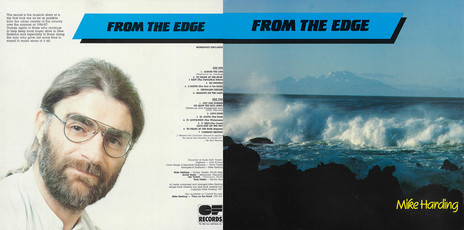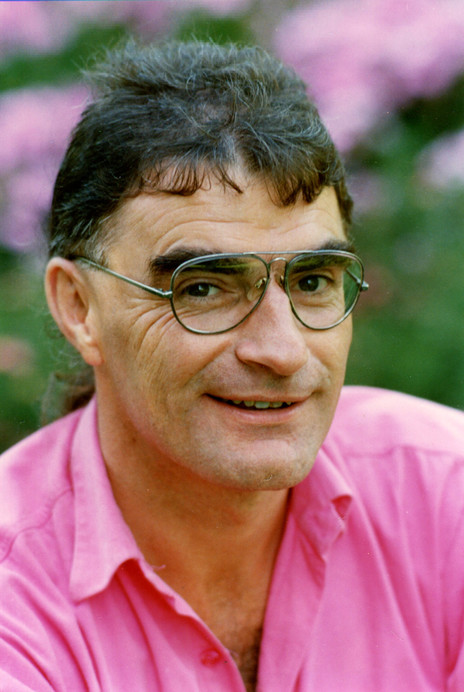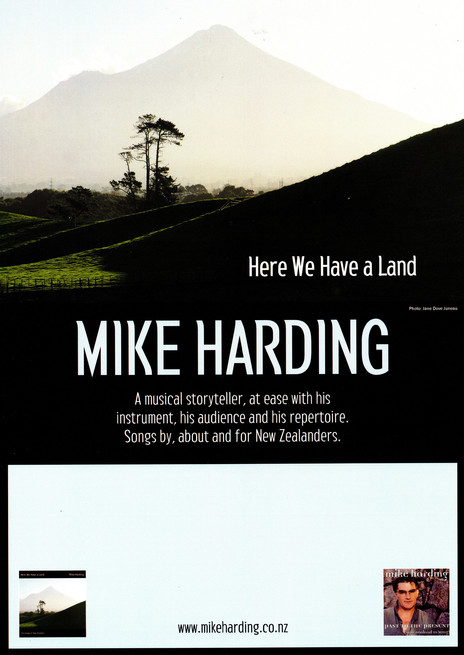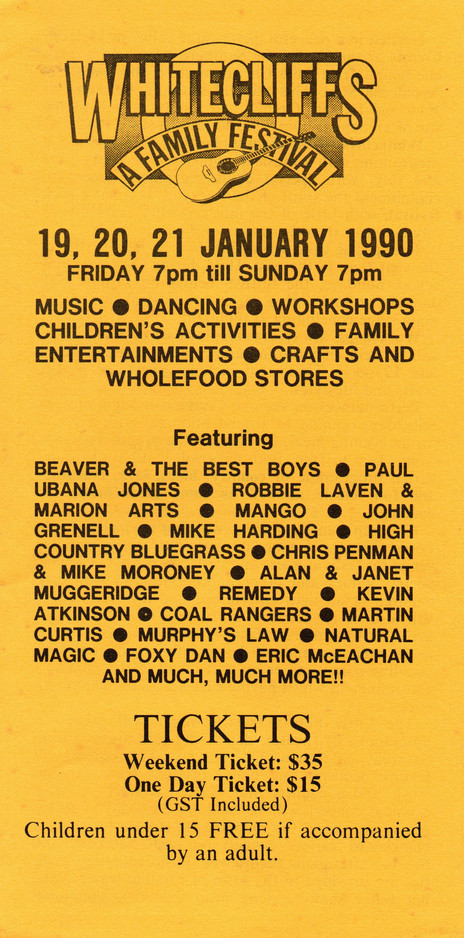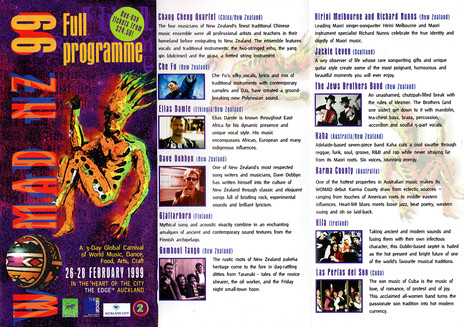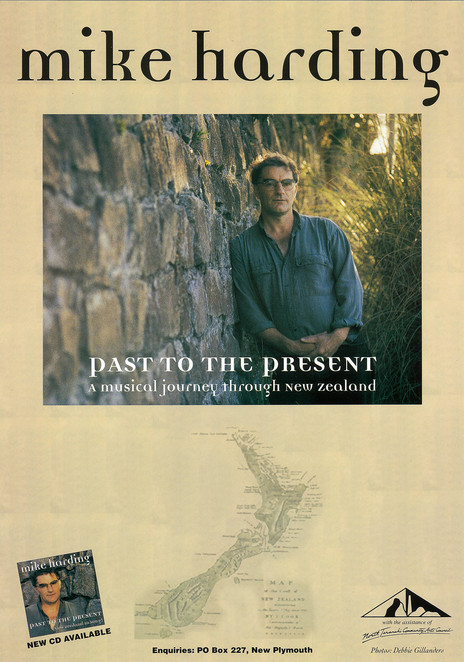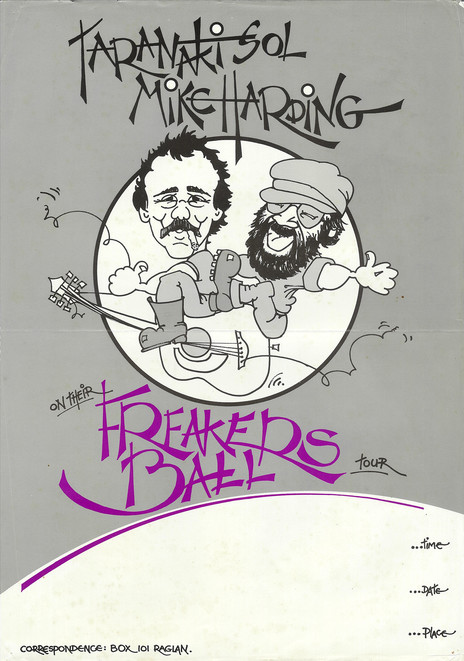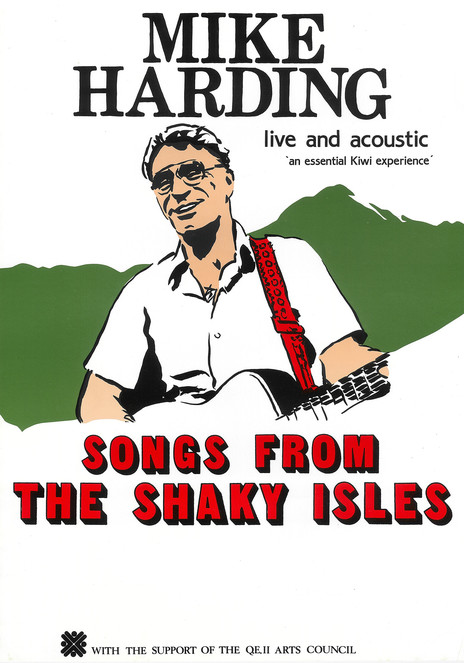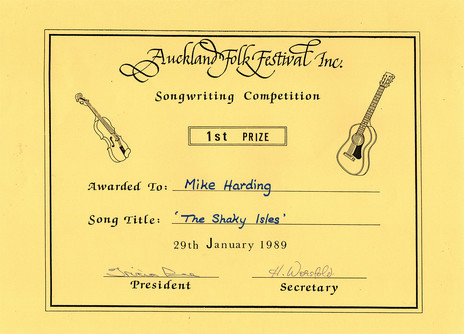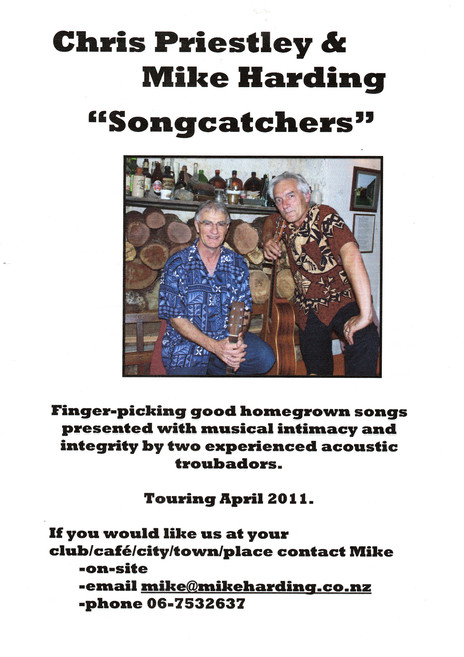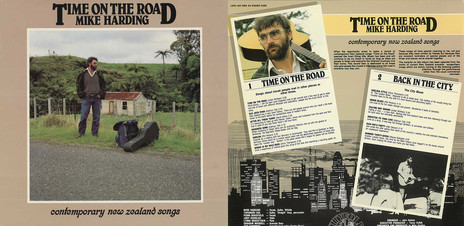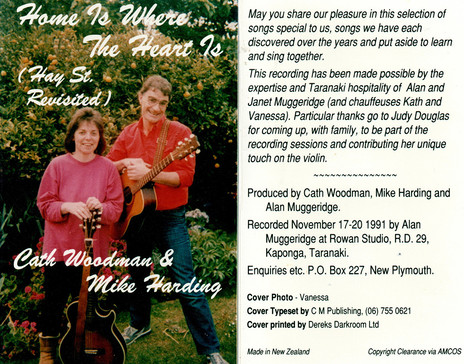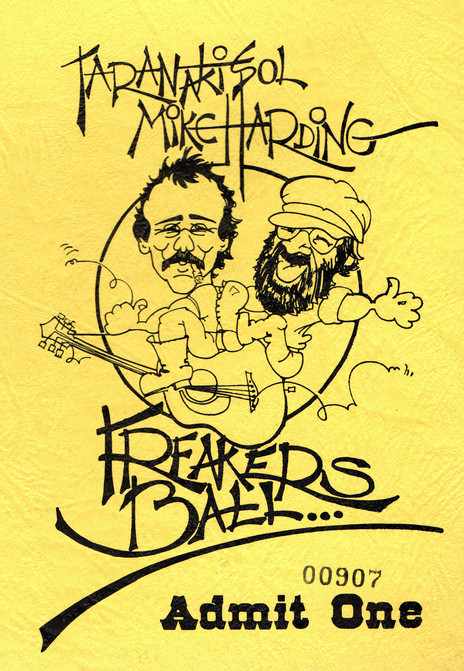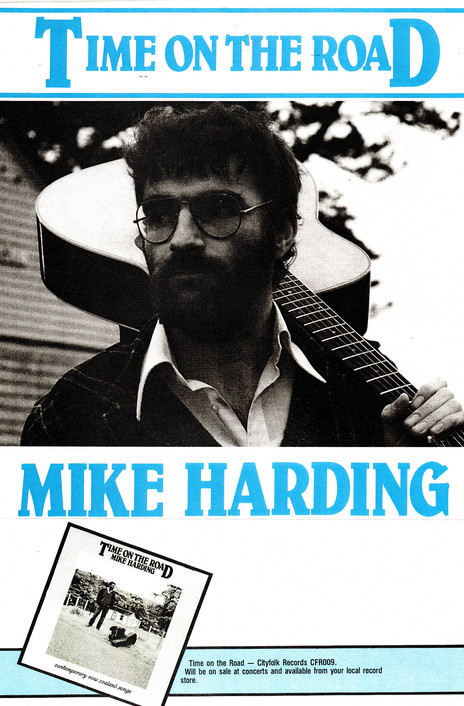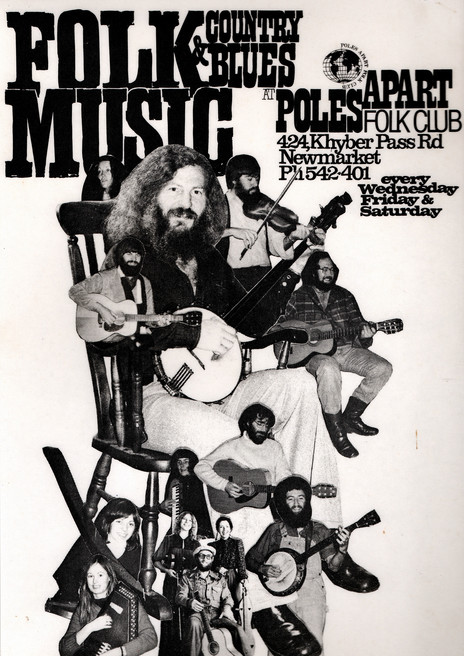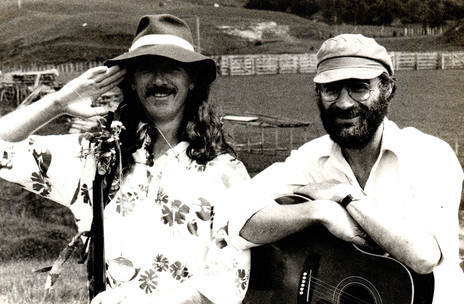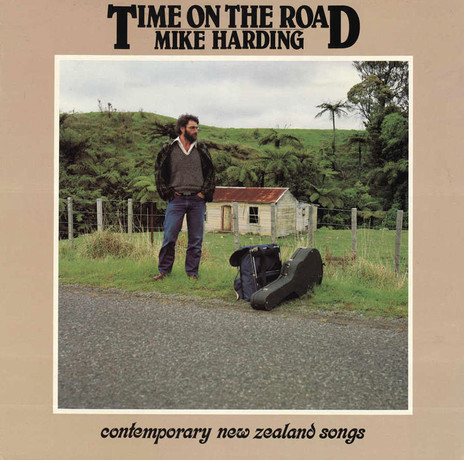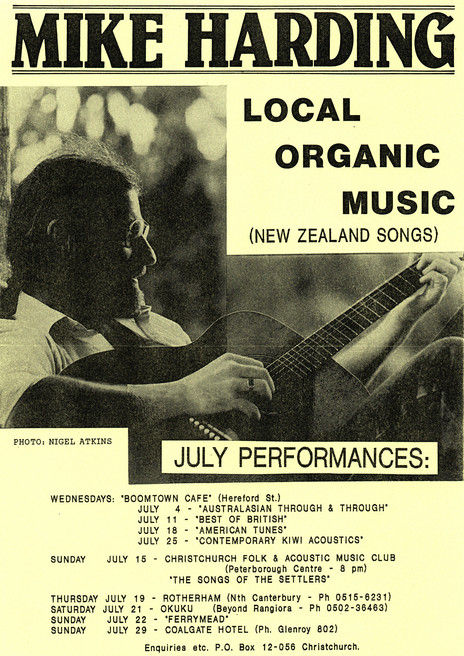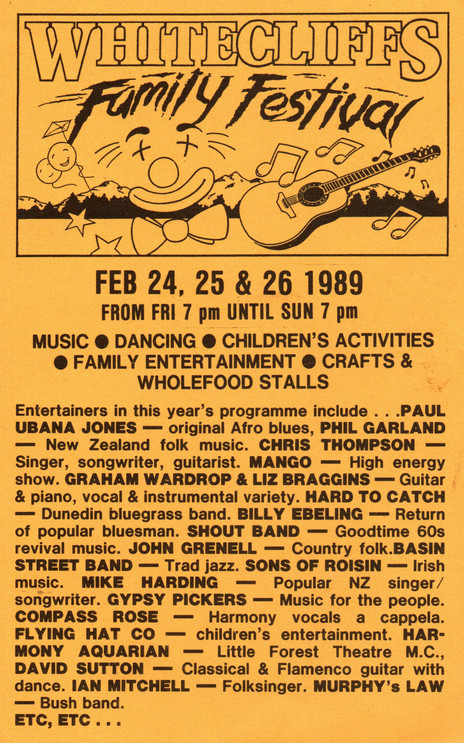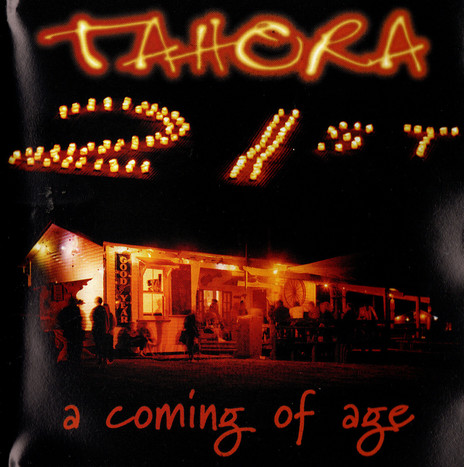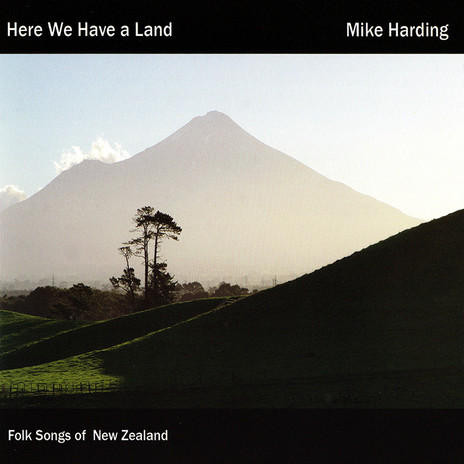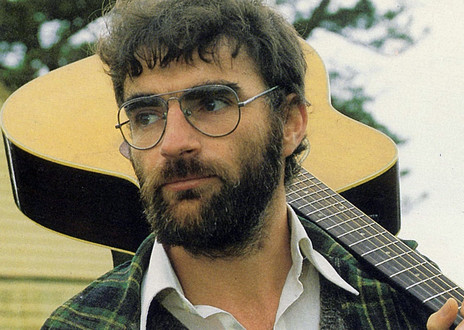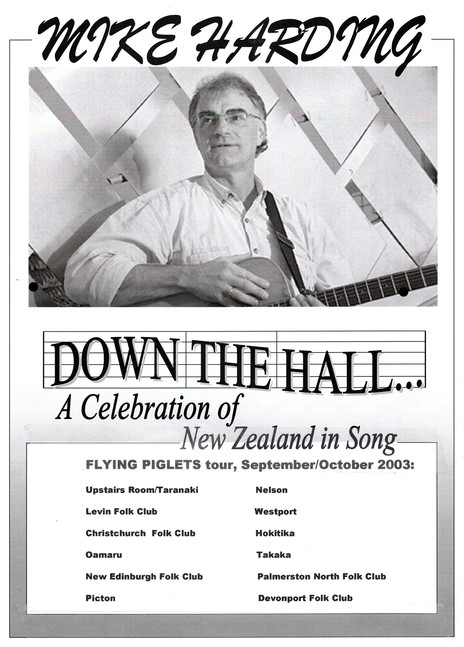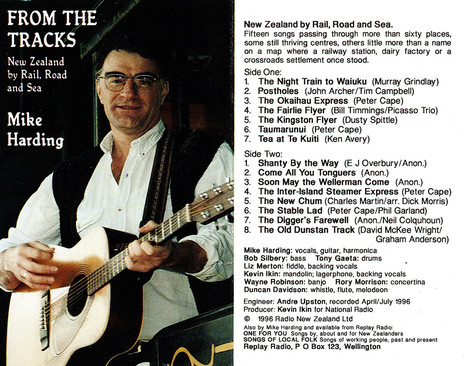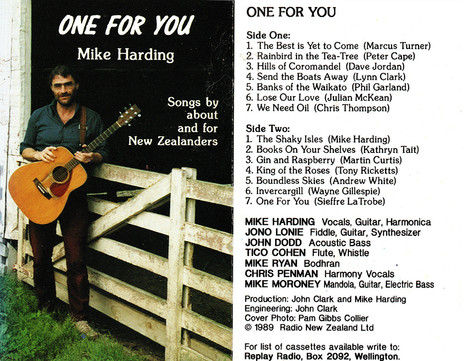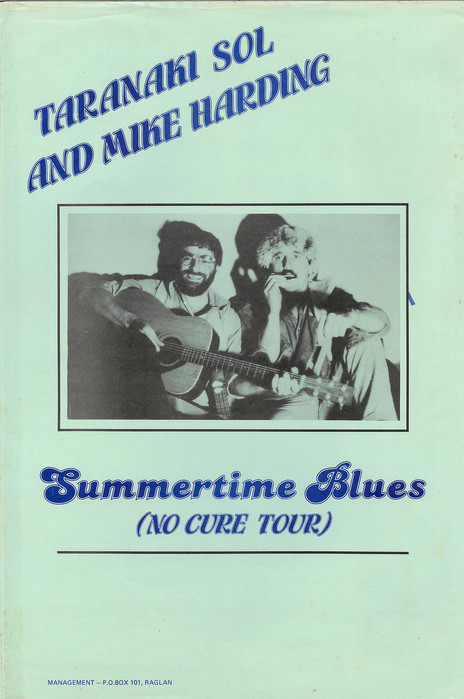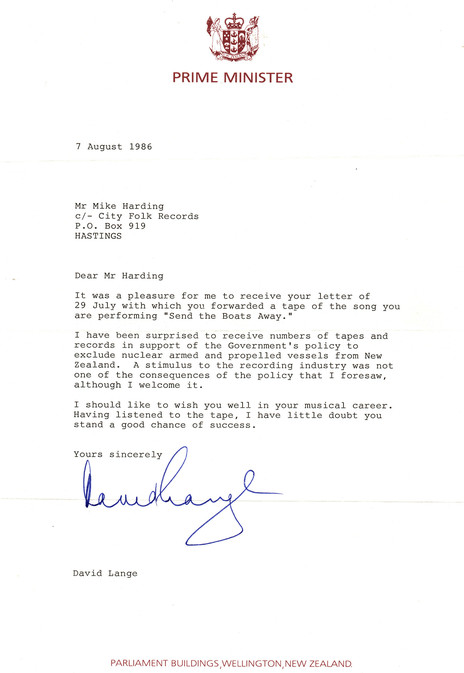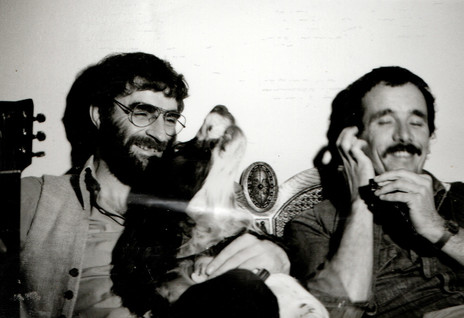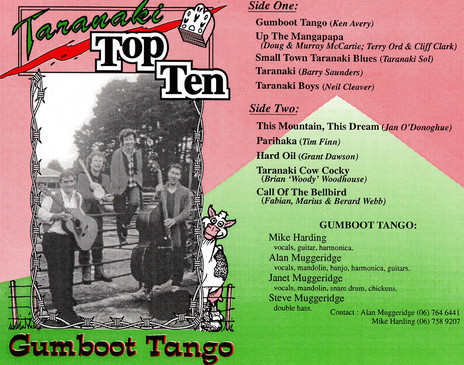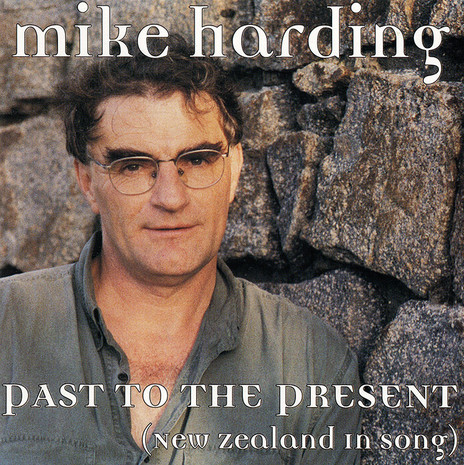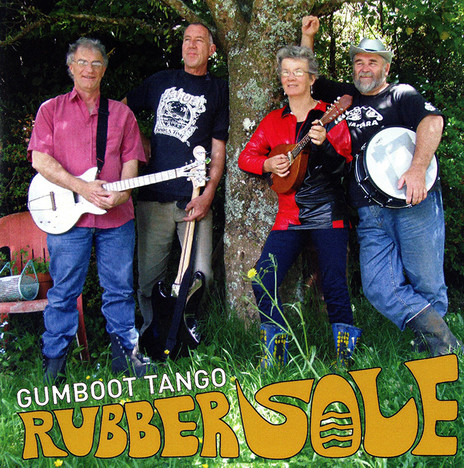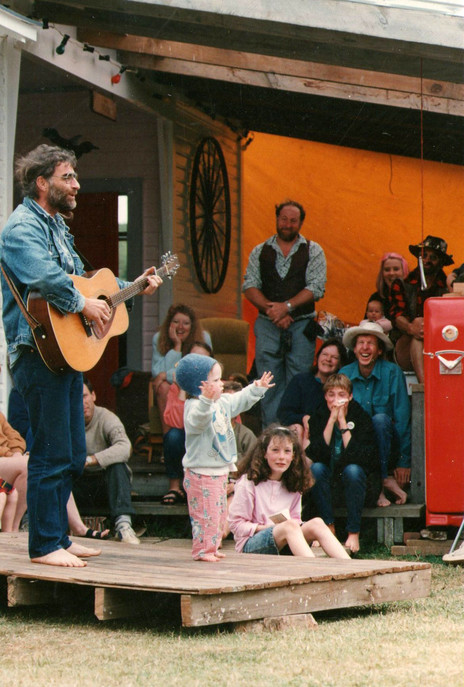He continues to perform the songs of New Zealand in the 2020s. Two of his current favourites are ‘The Nightwatch Song of the Charlotte Jane’ from the 1850s and ‘Eketahuna’, a celebration of his hometown to the tune of Christie’s 70s hit song ‘Yellow River’.
“It pins down where I came from,” Harding told AudioCulture. “And I’m gonna use that in future, possibly the next trip I do will be based on that. I can put together a package of two sets of songs that tell something of my story. They relate to aspects of my life over those first 40 years anyway.
“I try and rotate them around so that they get spread out too, [including, say] any Peter Cape song. When you do a show, you try and mix it up – a couple of funny ones, some more serious ones. The thing about folk audiences, they can listen, they will put the effort into hearing what you’ve got to say.”
Michael Harding was born in Eketahuna, north Wairarapa, on 16 July 1952, and the family spent the next few years on farms around the back of the Eketahuna District before settling in town in 1959.
It wasn’t a musical household, but Harding was getting into the likes of Simon & Garfunkel, Donovan and The Beatles. His first purchase was The Beach Boys’ ‘Good Vibrations’ single.
“I don’t think I even saw a guitar, apart from on TV here and there, until I got to Tararua College in Pahiatua,” he said. “The one time that really stuck with me was a party at the end of my seventh form year. There was a kid that had a guitar, and he was playing Simon & Garfunkel songs. That really knocked me sideways.”
Awarded dux of Tararua College in 1970, Harding received a studentship to attend Massey University in Palmerston North. At the first opportunity, he bought an acoustic guitar and set about teaching himself Neil Young and Bob Dylan songs. During three years as a teacher at Hawera High School, he helped set up a folk music club and travelled to folk festivals up and down the country.
“There was an English folk enthusiast, Chris Brady, and he would stay up till the middle of the night and tape the BBC folk programmes and pass them on to us. That sort of opened my eyes to an area of music that I hadn’t really found before.”
Hearing Phil Garland sing a colonial ballad introduced Harding to a rich vein of local music
At the National Folk Festival of New Zealand in Wellington, Harding was inspired when he heard folklorist and musician Phil Garland perform the colonial ballad ‘A New Chum Out From England’.
“I remember that that was the first New Zealand song I heard live that really impressed me,” Harding said. “We knew the book Song Of A Young Country, some of the local folkies were singing songs out of that, and he [Garland] was doing the same, putting songs into circulation.”
Encountering folkies from all around the country, Harding left the teaching profession and moved to Auckland in 1978. He became part of the burgeoning Auckland Acoustics scene alongside Wayne Gillespie, Chris Thompson, David Hollis, Kath Tait and Acoustic Confusion.
He lived close to The Poles Apart folk club in Newmarket and became a regular performer in the days when Frank Winter was in charge. He served his musical apprenticeship there and at the Cook Street Market and busking in Parnell Village and on Karangahape Road.
In late 1983 he teamed up with Taranaki Sol, aka Steve Sole, for a national tour featuring songs written by fellow Auckland folk musicians. “He had it worked out,” Harding said. “He knew how to get about the country and how to do publicity and promotional stuff.”
At their Napier show were Trevor Ruffell and Keith Gosney, a couple of part-time folkies who had set up their own Cityfolk Record Co label that had already released albums by Napier band Homegrown and Hamilton troubadour Chris Thompson. Ruffell and Gosney liked what they heard and the concept of presenting contemporary New Zealand songs. They offered Mike Harding a deal and Time On The Road was released in 1984.
Engineered by former Bay City Radio producer John Holmes at his home studio in Nash Street, Napier, the album featured songs written by Julian McKean, Kath Tait, David Hollis, Phil Powers, Chris Thompson, Neil Cleaver and Wayne Gillespie. The backing musicians included Taranaki Sol and Homegrown bass guitarist Tony Parker.
“That’s where I took off,” Harding said. “From then I did concerts of all New Zealand songs, and I haven’t looked back since. Cityfolk set me up a tour, they sent me around the country.”
He seldom played anywhere that was licensed, preferring the type of listening audience that attended theatres, halls, folk clubs, festivals and small cafés. He was travelling light with a backpack, a guitar and a box of records, relying on buses and trains or the vagaries of hitchhiking.
A lot of gigs came through the Arts Council set up. “I could make a living out of them; I could get a fee from the Arts Councils. Every region had their Arts Council, and they were fairly autonomous and had a budget that they could spend.”
There were lessons to be learned along the way, too. At one West Coast pub the only source of substantial light in the room was above the pool table, so Harding decided to move it. That evening, the locals were none too pleased when they couldn’t see their pool balls.
Harding’s second LP, From The Edge, released on Cityfolk in 1987, was his first foray into recording his own songs. Again engineered by John Holmes, in his new Audio East premises in Napier South, backing was provided by Homegrown. From The Edge was judged folk record of the year at the 1988 NZ Music Awards.
With the release of each album, Harding travelled to the UK and Australia and played folk clubs. At one point he considered settling in England, much as Netherlands-born New Zealand folk singer/songwriter Paul Metsers had done earlier in the decade.
By the late 80s, Harding’s gigs featured setlists of all-New Zealand music
“By the late 80s, because I was doing all New Zealand music, there was a point in there where I could have made a better living playing New Zealand music overseas than I would have in New Zealand, because it was kind of a novelty,” Harding said.
“But along the way it got to be, ‘Why am I doing this? What’s the point of this? I really want to do these songs to New Zealanders because it’s their background, it’s not just a novelty.’ So I didn’t follow that up in a big way. Obviously, I didn’t stay over for long anyway; I was wanting to come home and get on with it.”
During one of his Australian trips Harding started thinking seriously about putting together a guidebook of New Zealand folk and popular song. Then living in Christchurch, he assembled his research and sent it off to Godwit Press. They took it on and When The Pakeha Sings Of Home: A Source Guide To The Folk & Popular Songs Of New Zealand was published in 1992.
The book sparked new interest in New Zealand’s folk music history and National Radio called on Mike Harding to record several series of New Zealand music. A dozen or so tracks would generally be laid down over two days for two radio programmes. Dick Le Fort, Neil Maddever and Andre Upston produced and/or engineered various sessions in Auckland and Wellington.
“Every time they did that, they did the recording with session musicians and at the end of it I got a cassette out of it,” Harding said. “The only way of putting stuff out was on cassette, some of which have been re-released on CD, as you do. National Radio was a big help.”
Cassettes One For You, Songs Of Local Folk and From The Tracks included songwriters as diverse as Peter Cape, Phil Garland, Dusty Spittle, Lynn Clark, Andrew White and Murray Grindlay. A collection from the recordings was released on CD in 1998 as Past To Present (New Zealand In Song).
Since the early 1990s, Mike Harding has been based in New Plymouth. There he joined Rowan Studios owners Alan and Janet Muggeridge’s band Gumboot Tango. In 1995 they released Taranaki Top Ten, a collection of Taranaki songs that included ‘Taranaki’ by Barry Saunders, ‘Parihaka’ by Tim Finn and ‘Gumboot Tango’ by Ken Avery. They followed that up with Rattle Yer Dags.
Alan Muggeridge passed away in 2000, but Harding, Janet Muggeridge, Alan’s brother Steve Muggeridge and drummer Wayne Morris have kept Gumboot Tango going. As well as their own songs, 2008’s Rubber Sole included their takes on Kiwi classics ‘Rugby, Racing And Beer’, ‘She’s A Mod’, ‘Counting The Beat’ and ‘Sway’.
Harding still takes to the road as a solo performer as well. His modus operandi is performing songs particular to the area in which he is playing. “Obviously the South Island is goldmining and all that; you can go to Otago and do lots of songs down there. But every little place I’ve found had a collection of songs that people had written about their place.”
--
Read more: When the Pakeha Sings of Home
